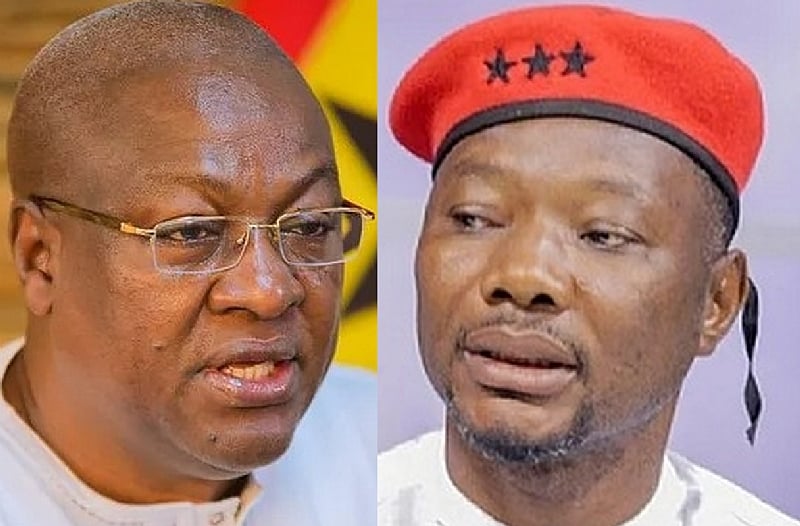John Dramani Mahama, the flagbearer of the National Democratic Congress (NDC), recently voiced strong objections to the Electoral Commission’s (EC) decision to disqualify Bernard Mornah, the presidential candidate from the People’s National Convention (PNC), from the upcoming 2024 elections. Speaking at an event in Nabullo, Sissala East on October 13, Mahama highlighted his concerns regarding the impartiality of the EC, suggesting that the disqualification of Mornah was unfair. He argued that Mornah, whom he characterized as a capable and strong candidate, was more deserving of a place on the ballot than several other candidates who were permitted to run. This statement laid the groundwork for Mahama’s broader criticism of the EC, which he accused of potential biases in its candidate assessment.
The EC had previously announced the disqualification of 11 presidential candidates on September 20, citing their failure to meet specific eligibility criteria necessary for candidacy. In this context, Mahama’s remarks indicate a significant level of discontent not only with the disqualification of Mornah but also with the overarching electoral process and regulatory practices of the EC. The NDC leader openly questioned the fairness of the criteria employed by the EC, suggesting that their decisions seemed to disproportionately affect certain candidates—particularly Mornah, who, according to Mahama, surpassed many competitors in qualifications and capabilities.
Mahama contended that it is essential for democratic processes to allow fair representation and contestation, emphasizing that the exclusion of qualified candidates undermines the integrity of the electoral system. During his speech, he did not shy away from making pointed remarks about the composition of the ballot, asserting that the PNC has historically been a significant player in Ghana’s political landscape, and its absence in the upcoming election could disenfranchise a segment of the populace that supports the party. Mahama’s statements reflect a desire for a more inclusive electoral environment where diverse political voices can compete on equal footing.
In exploring the implications of the EC’s decisions, Mahama pointed out that the disqualification of candidates like Mornah could create a perception of discrimination in the electoral process. He highlighted that the presence of other candidates on the ballot, whom he considered less qualified, raised questions about the transparency and accountability of the EC’s decision-making processes. By lamenting that some parties represented on the ballot were less worthy than the PNC, Mahama articulated a broader concern regarding the quality of candidates that the electoral system allows, which directly affects the democratic principles that underlie elections.
The issue of candidate disqualification not only reflects the specific case of Mornah but also serves as a lens through which Mahama critiques the current state of Ghanaian democracy. His comments indicate a rising apprehension among political leaders regarding the electoral commission’s role in managing and facilitating fair elections. By framing the disqualification as potentially politically motivated, Mahama called into question the impartiality of the EC, suggesting that there is a need for reform and greater scrutiny over its practices. He deemed it necessary for all stakeholders to engage in conversations about electoral integrity to protect Ghana’s democratic foundations.
Mahama’s criticism of the EC and his spontaneous support for Mornah underscores the interconnectedness of political controversies and the call for a more thorough evaluation of electoral practices in Ghana. As the country approaches the 2024 elections, the dialogues surrounding disqualifications raise pertinent questions about party representation, electoral justice, and accountability within the EC. Mahama’s assertions serve as a rallying call for not only party solidarity among the opposition but also for electoral reforms that ensure fair and transparent elections, an essential element for the functioning of democratic governance in Ghana.














